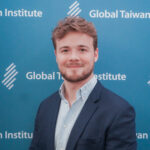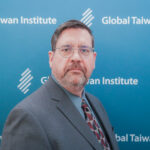Wednesday, August 9, 2023 from 11:00 AM – 12:30 AM (ET)
In-Person (RSVP here) and Webcast
Event Description:
The past year has seen ever-growing prominence in Taiwan’s information environment for “America Skepticism Theory” (in Mandarin, “疑美論”): a broad set of narratives that depicts the United States as an unreliable partner for Taiwan, and one that will withdraw its political and security support for Taiwan when it suits US interests to do so. This narrative has its origin in anti-American propaganda produced by the People’s Republic of China (PRC), which is intended to undermine the closer relations formed between Taiwan and the United States in recent years. Despite its origins as a hostile propaganda campaign intended to undermine Taiwanese resilience against PRC pressure, “America Skepticism Theory” has emerged in both traditional and online media as a significant factor affecting public discourse in Taiwan regarding its relationship with the United States.
Over the course of the past year, the Information Environment Research Center (IORG), a civil society organization based in Taiwan, has been conducting data-focused research into the content and origins of the “America Skepticism Theory” narrative, as well as its impacts on Taiwan discourse and public opinion. The Global Taiwan Institute (GTI) has also been performing research for a separate narrative report on this topic, which is intended to provide illustrative case studies as to how this narrative has affected Taiwan’s information environment.
In this launch event and public discussion seminar, each organization will discuss their parallel and complementary reports on this topic: IORG Co-Director Mr. Chihhao Yu will discuss the contents of IORG’s new report US Skepticism and Where It Came From, while GTI Deputy Director John Dotson will provide an overview of GTI’s report, Chinese Information Operations Against Taiwan: The “Abandoned Chess Piece” and “America Skepticism Theory.”
The discussants for this event will also include Dr. Wei-Ping Li, a former journalist in Taiwan and current academic researcher in journalism, who will discuss the presence of disinformation in Taiwan’s media environment; and Mr. Benjamin Sando, a graduate student at Georgetown University who has spent the past year in Taiwan, studying civil society responses to online propaganda and disinformation. The panelist presentations will be followed by an open discussion and audience Q&A, moderated by Mr. Dotson.
The event will be held at the GTI office located at 1836 Jefferson Place NW in Washington DC (approximately one block from the Dupont Circle Metro). Doors will open at 10:30 AM (ET), and the event will begin at 11:00 AM (ET). If you plan on attending in-person, please RSVP by August 7, as seating is limited. A light lunch will be provided. Please direct questions or concerns to Program Manager Marshall Reid at mreid@globaltaiwan.org.
**Media: Please contact Marshall Reid at mreid@globaltaiwan.org if you would like to bring additional crew members or equipment, so that we can be sure to accommodate you.
The Speakers:
Chihhao Yu is a software engineer and information designer, and co-director of the Taiwan Information Environment Research Center (IORG) based in Taipei, Taiwan. Chihhao coordinates scientific research, data engineering, community engagement, and international exchange at the center, directing organizational capacity towards safeguarding election integrity and building democratic resilience in Taiwan. He is also a contributor to g0v (pronounced “gov-zero”), Taiwan’s civic hacking community, and an organizer of Facing the Ocean, a West Pacific civic hacking network.
Dr. Wei-Ping Li earned her Ph.D. from the University of Maryland’s Philip Merrill College of Journalism. Her research interests include propaganda, social media content moderation, and digital privacy challenges. Prior to entering academia, she worked as a consultant in the field of digital human rights. She has also worked as a journalist for Taiwanese media outlets. Wei-Ping Li received her LL.M. (Master of Laws) from the University of Pennsylvania Law School, and has been admitted to the New York State Bar as an attorney to practice law since 2009.
Benjamin Sando is a current M.A. student in the Georgetown University School of Foreign Service. He has spent the past year in Taiwan as a research fellow with DoubleThink Lab, a civil society organization dedicated to strengthening Taiwan society’s resilience against online disinformation and malign Chinese influence operations. Ben is the current recipient of a Global Taiwan Institute scholarship to support this research work. He has also previously worked and studied in Korea as a research fellow with the Yonsei Institute of Sinology.
Speaker / Moderator:
John Dotson is the deputy director at GTI. A former US Navy officer and professional staff member of the US-China Economic and Security Review Commission, he has performed extensive writing and research on a range of political and national security issues related to US policy in East Asia, to include Chinese propaganda and influence efforts, military-civil fusion efforts within the People’s Liberation Army, and patterns in military coercion efforts directed against Taiwan. He is a proficient Mandarin linguist, who has performed extensive original research in indigenous Chinese language sources. Mr. Dotson holds an M.A. in National Security Studies from the US Naval War College, and a Master of International Public Policy from Johns Hopkins-SAIS.
Event Summary:
On August 9, 2023, the Global Taiwan Institute (GTI) held an event titled “‘American Skepticism Theory: Anti-American Propaganda and its Impacts in Taiwan’s Information Environment,” featuring GTI Deputy Director John Dotson, Taiwan Information Environment Research Center (IORG) Co-Director Chihhao Yu, Dr. Wei-ping Li, and DoubleThink Lab Research Fellow Benjamin Sando. The discussion was also moderated by Mr. Dotson.
The seminar opened with remarks and a presentation from Dotson, who discussed the contents of GTI’s narrative- and case study-based report, “Chinese Information Operations Against Taiwan: The ‘Abandoned Chess Piece’ and ‘America Skepticism Theory.’” Dotson introduced “American Skepticism Theory” as a growing narrative of distrust and unreliability regarding the United States, which plays off past tensions in US-Taiwan relations. He then clarified that this narrative was not necessarily created by the People’s Republic of China (PRC), but that it has been amplified by PRC propaganda. Dotson then introduced the “Abandoned Chess Piece” narrative, which frames the United States as a powerful country trying to subordinate Taiwan as a means of securing its geopolitical interests. He then went on to highlight the methods of amplification used by the PRC, as well as the sub-narratives that exist. Dotson concluded by highlighting the prominent space these narratives hold in political discourse and the impacts they have had on Taiwan’s youth.
Next, Chihhao Yu presented IORG’s data-driven report “US Skepticism and Where It Came From.” Yu began by explaining the motivations behind the report, which was intended to evaluate the current state of Taiwan’s media environment and provide recommendations for improving safety and accountability. To gather data for the report, IORG used the IORG Information Environment Archive, which targets Mandarin-language media platforms. IORG used the archive to determine significant topics and events related to US-Taiwan relations. They then used artificial intelligence to find rhetorical patterns in posts and videos relating to these topics. In doing so, they found that most narratives are created by Taiwanese actors, while Chinese actors amplify them. Furthermore, these narratives in Taiwan also work in conjunction with PRC propaganda that promotes a positive image of China.
Following this, Wei-ping Li reflected on the findings of the two reports, while also adding her own observations to the discussion. Li stated that American Skepticism can be broadly categorized as a conspiracy theory. Li proceeded to describe the media environment in Taiwan, highlighting that most Taiwanese people consume the news through social media and news aggregators such as Line. This unique media climate creates several major challenges for civil society organizations seeking to act as safeguards against disinformation. Li concluded by providing recommendations for improving media practices and reevaluating methods for teaching media literacy.
Lastly, Benjamin Sando discussed the role of civil society in Taiwan, with a particular emphasis on societal efforts to combat disinformation within Taiwan’s media space. Sando argued that civil society can act and respond in a way that the government cannot.
This summary was written by GTI Summer 2023 Intern Eric Jung.
To receive all our updates directly in your inbox you can subscribe by pressing the button below.



